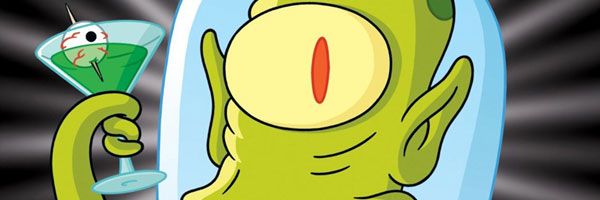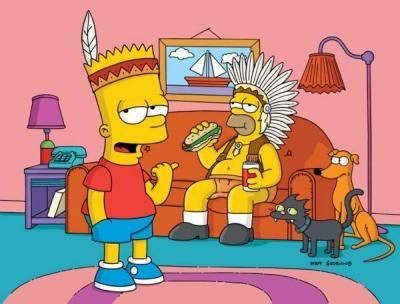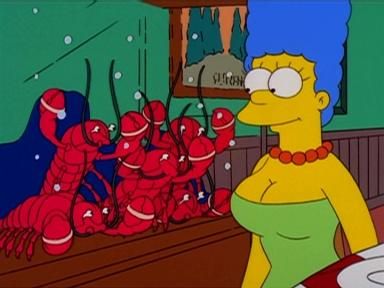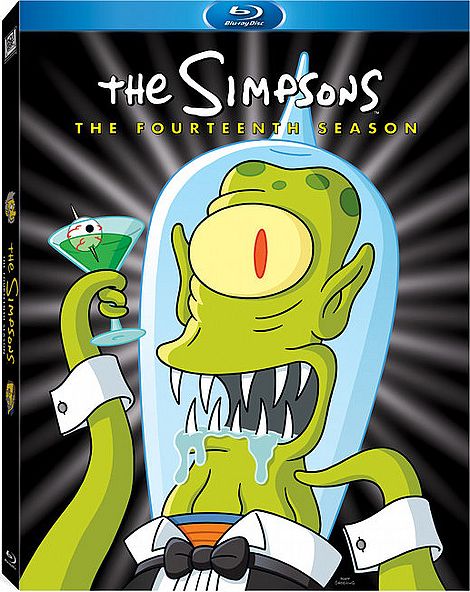In twenty-plus seasons The Simpsons has produced nearly 500 episodes, a motion picture and innumerable amounts of merchandise. The creative minds behind the series include names like Conan O’Brien, Brad Bird (Mission: Impossible - Ghost Protocol), and James L. Brooks among others. Through the years, the show has retained the original cast who have expanded beyond the primary characters to really flsesh out the Springfield community. Where would the show be without Ned Flanders or Milhouse or to a lesser extent, Duffman? Countless celebrities have made their way through Springfield while the titular family has become nearly as recognizable as Mickey Mouse. For a show that began as a handful of minute-long interstitials, The Simpsons has evolved into a pop culture institution. And for good reason. In its prime, The Simpsons was the best-written, best-performed, most subversive on television. Since the height of its popularity in the late 80s to mid-90s, other shows have caught on and caught up to the Simpson formula.
The show itself had covered so much ground by the 14th season that it began retreading on familiar territory. While there were still moments of brilliance in the show, the consistent quality of the first decade had started to wane. Hit the jump for my full review of season 14 of The Simpsons on Blu-ray.
Because The Simpsons airs on network television and because the show’s popularity happened parallel to the rise of recordable media, true fans of the series already know most of the episodes by heart. Season 14 includes 22 episodes and I’m not going to waste time by reviewing each one individually (Of course the perennial Sideshow Bob and Treehouse of Horror episodes were entertaining). Instead I’m going to look at a handful of examples of the best and worst that the season had to offer. First, the good: episode 15, C.E.D’oh was my favorite show of the season. In it, Homer assumes the task of managing the power plant after he ousts Mr. Burns. It felt like a throwback to earlier seasons. The story was small enough that the characters weren’t drowned out by the scenarios. Every kind of joke was in the story, from broad slapstick to an Edgar Allan Poe allusion staged with pitiful perfection at Mr. Burns’ expense. The strength of an episode like this is that when it aired we’d lived with these characters for more than a decade and most of them had grown into complete, organic people with reputations within the show. Sometimes it’s nice to see these characters interact within their established world instead of being put in extreme circumstances. It’s the same reason that I enjoyed episode 20, Brake My Wife, Please which explored how and why Marge could continue to love Homer. However, Pray Anything, is a great example of “the Simpsons vs.” kind of episodes. In the show, Homer takes ownership of the church and proceeds to blaspheme and offend the Lord to the brink of Springfield’s total destruction. While the story is broad, it’s also a reminder of what made The Simpsons a great show. It’s almost a morality tale that refuses to take a moral stance. Instead it shows just how funny misguided passion can be. It’s also displays the benefit of animation in comedy. Not even the most ambitious live-action shows can match the scope of the story and timing of the comedy.
Now for the bad. At a certain point, The Simpsons has to compete with its own history. Matt Groening, the show’s creator has said that fans tend to compare new episodes of the series to their favorite moments from the show’s history. If that’s the case, then the longer the show runs, the harder it will be to impress viewers. While I hesitate to say that season 14 felt formulaic, there is a definite feeling of deja vu with some episodes and what’s more, I think the earlier seasons handled these moments better. The most noticeable instance was in episode 17, Three Gays of the Condo which saw Homer having a fight with Marge and moving into an apartment with two homosexuals. While the episode wasn’t bad in its own right, I think that the season 8 episode Homer’s Phobia was more observational and funnier. In that episode, which guest-starred John Waters, Homer worried that Bart was gay and spent most of the show trying to straighten him out. The story surrounding Three Gays, with Homer leaving Marge, had been done many times before and was a weak device to get to the observational and situational comedy. The other, bigger criticism I have is when episodes get lost in the concept or gimmick and deserts character, which I think is the core of the series. The two biggest perpetrators in this season are Large Marge, when Marge mistakenly receives breast implants and Helter Shelter where the family is forced to participate in a reality show. Shelter completely goes off the rails story-wise in the last act and takes a few baffling turns. It’s an example of concept coming before execution. As far as the overall quality of the season, it isn’t as consistently good as some earlier seasons but in the evolution of the show and the characters, it’s solid.
As far as the A/V quality of the season, it’s worth noting that at the time it was produced, season 14 was not mastered in widescreen or high def. Season 14 was also the first time that the show used digital coloring instead of the traditional painted cels. This is comparable to music transitioning from vinyl records to cds. The animation looks a lot cleaner because of the change and allowed an infinite number of layers to be laid on top of one another. This means that the animation could be more complex and still be discernible. The drawings are still done by hand and characters are still laid on a background and in high definition, you can sometimes see the divisions of the layers. The audio is fantastic which isn’t surprising for a show made around the sound design. The show looks and sounds great, but for the difference in price, I would stick with the DVDs.
Special Features
One thing I’ve always appreciated about The Simpsons DVD collections is the amount of extra content that the producers wedge into the discs and the 14th season is no exception. Like the previous seasons, every episode features commentary from cast and/or crew members with the occasional special guest (David Byrne, Weird Al, etc). As a huge fan of the show, I really like hearing the about the process that goes into creating a show and the writers and producers are fairly candid and honest in their evaluations. Deleted scenes are on the majority of the shows as well. There are also a couple of featurettes which are only a few minutes long. The It’s Only Rock n’ Roll featurette is really entertaining and gives a small look behind the scenes of a record session with Keith Richards. The disc menus are themed around Treehouse of Horror, the popular, annual Halloween episodes and some classic episodes are included.
Final grade: B-




